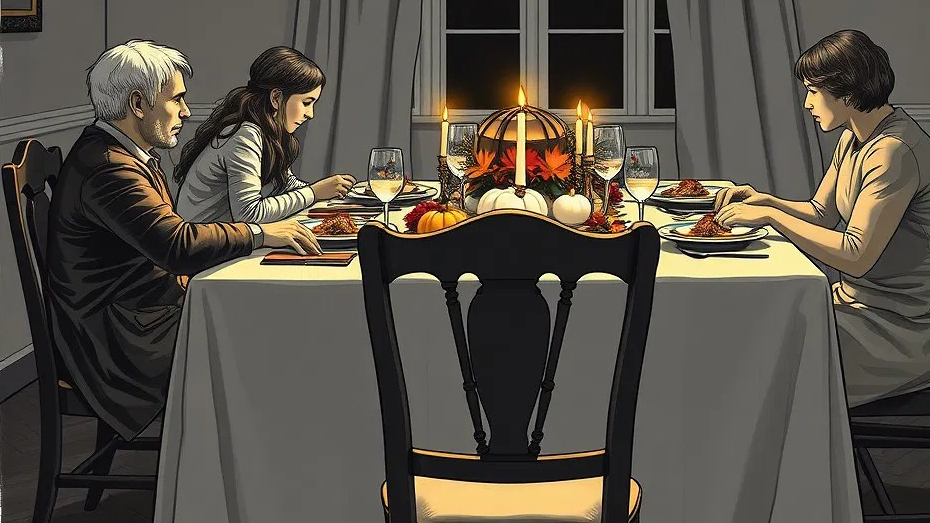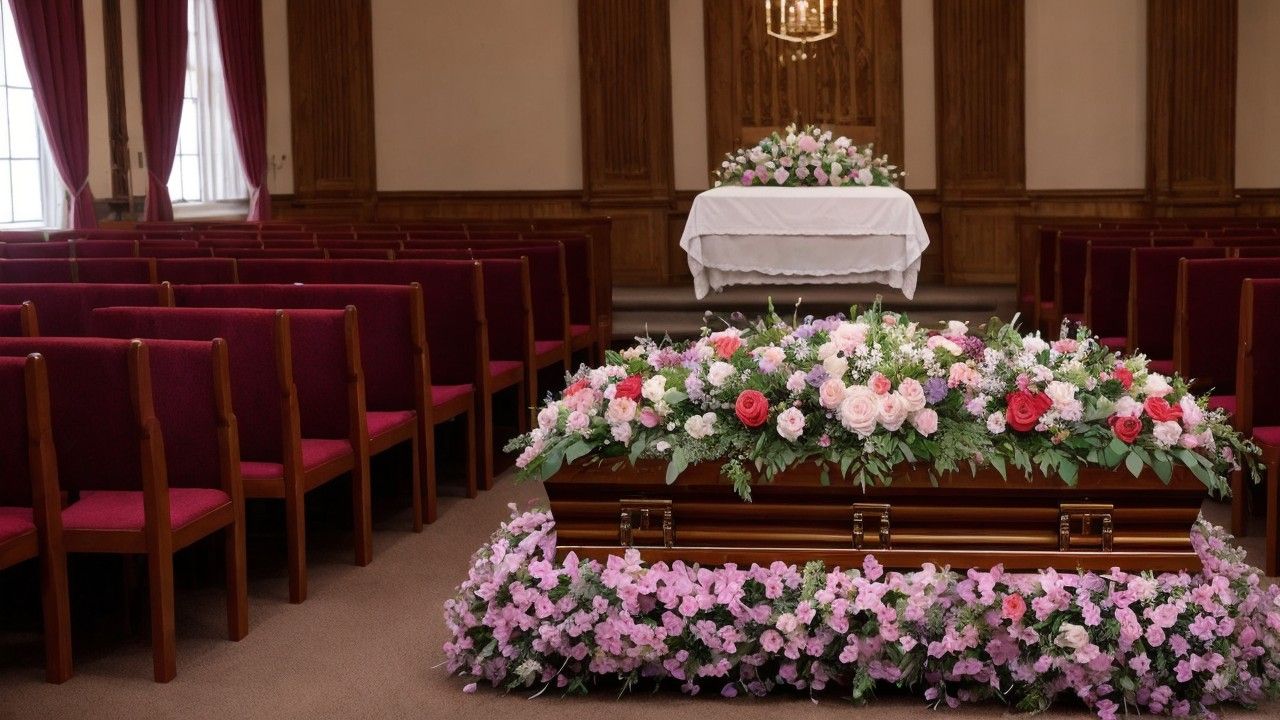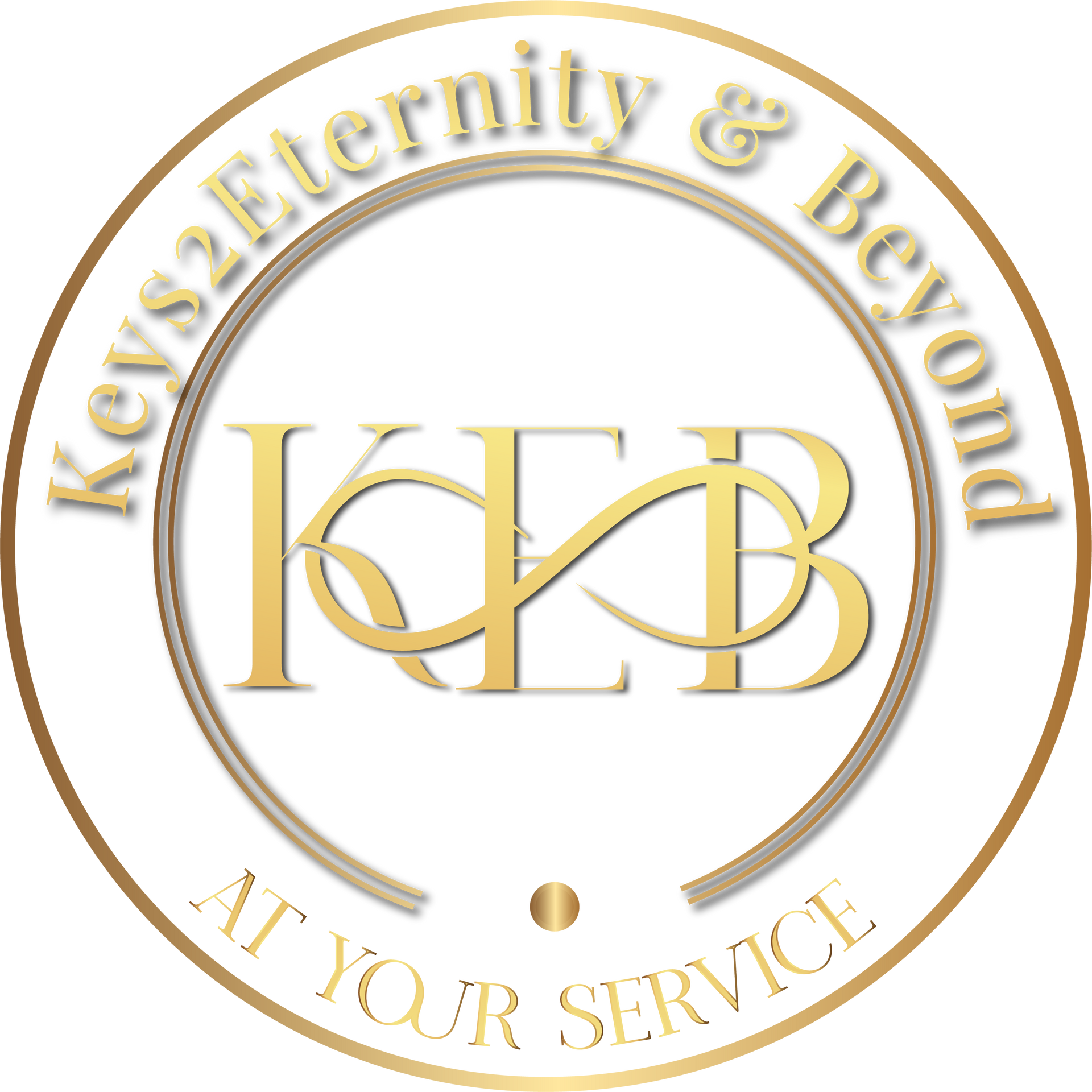Find a Trusted Proivder
Helpful Links
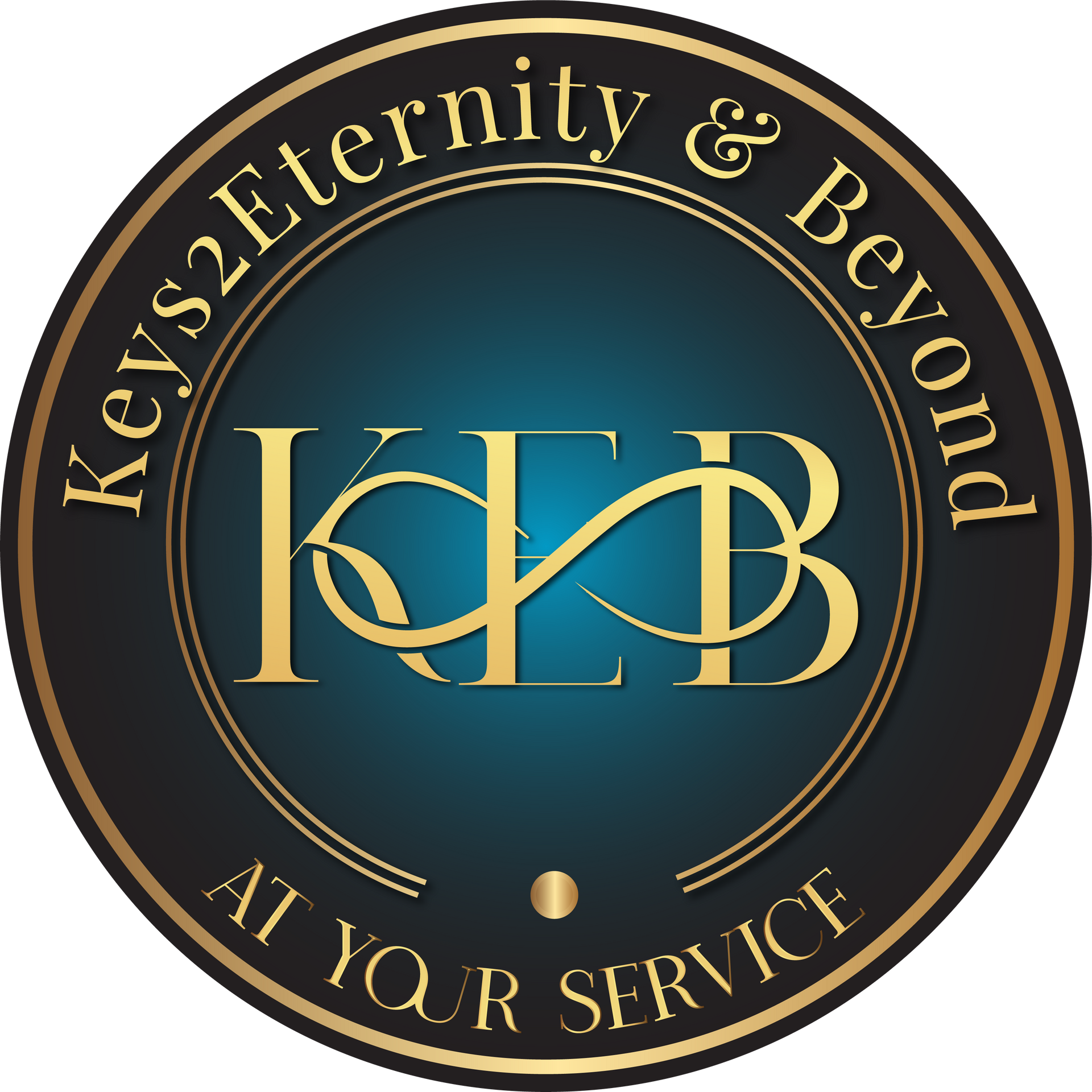
Business Hours
- Mon - Fri
- -
- Sat - Sun
- Closed
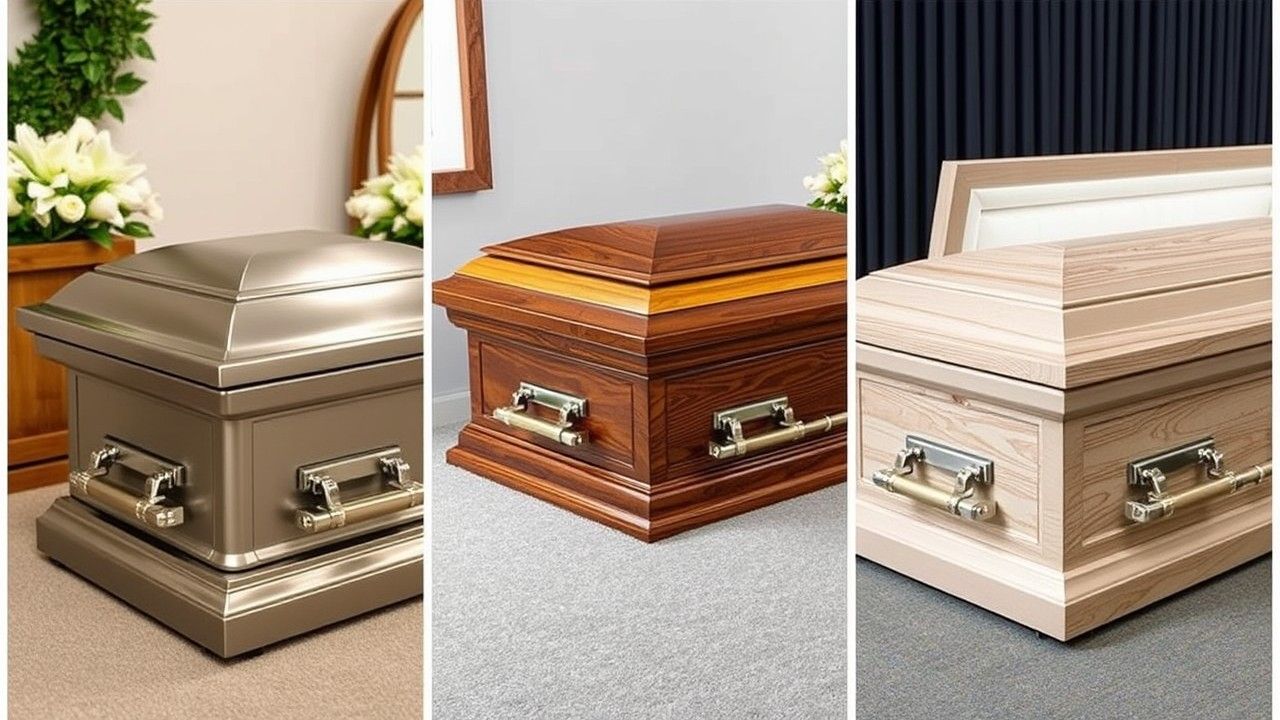
Share This Article
Caskets have defined traditional funeral services for hundreds of years. The earliest caskets were made of natural materials such as wicker, willow, bamboo, and wood. Today's modern caskets are products of natural and synthetic materials, which largely contribute to their market price. Add to that the design, style, and features, and you will understand why caskets are the most expensive products in a funeral budget.
In this post, we will look into the different types of caskets, their prices, and how to choose one that fits your budget and honors your loved one.
What's the Difference Between A Casket And Coffin?
Most people use these two words interchangeably. It's not uncommon to hear the term casket and coffin in reference to these interment containers. While they serve the same purpose and may well be considered the same thing, there's a difference between a casket and a coffin.
A coffin has a distinctive shape with six sides compared to a casket with four sides. A coffin is wider at the head with visible shoulders and narrower at the bottom. The earliest coffin designs featured a glass top complete with a window to facilitate viewing, while a casket can have the lid split into two.
Coffins are simple designs with limited features and details, which makes them cheaper. On the other hand, caskets are made with more materials, which drives up the costs. Caskets are commonly used in the United States and are popular with affluent societies, whereas coffins are used in different cultures all over the world.
What Are The Different Types of Caskets To Buy?
Like every free market, caskets are available in different designs and can be made of wood, metal, bronze, plastic, or other natural materials. In some cultures, especially among Asians, banana leaves are used to make beautiful, unique caskets. Below are the different casket options you can choose from.
1. Metal Caskets
These are the high-end options you'll find at the showroom. Often made from bronze, stainless steel, or copper, metal caskets are rust-resistant and highly durable, which explains why they are expensive. If you want a more affordable metal casket, you should consider those made of steel since the material is easily accessible and they're just as durable.
Again, when buying a steel casket, different criteria are used to determine the quality of the product, which further influences the cost. This criterion is referred to as a gauge, which further determines the thickness of the steel. Lower gauges equal higher metal thickness, which translates into higher quality products and high costs. For example, a 14-gauge steel casket is thicker and costs more than a 20-gauge steel casket.
Metal caskets can be painted in various colors that match gold plating. They may also feature a protective rubber gasket that prevents outside elements from penetrating the casket after burial.
2. Wood Caskets
Traditionally, caskets were made of wood, and today, they remain the most common option available. Different types of wood can be used to make high-quality, long-lasting caskets.
However, the most expensive options are made from furniture-grade wood veneer and solid hardwoods such as oak, mahogany, poplar, walnut, maple, and pine. Wood caskets, whether hardwood or softwood, can have the same paint finishes, including satin, matte, and high gloss.
3. Cremation Caskets
Cremation caskets can be made of wood, wicker, cardboard, bamboo, or other biodegradable materials. They hold the body before it is wheeled into the cremation chamber. These ordinary alternative boxes do not have many details in terms of material and design, which is why they are usually burnt together with the deceased's remains. When choosing a cremation casket for a loved one, ensure that it is leakproof, rigid, nontoxic, combustible, and without metal parts.
4. Biodegradable Caskets
These options are for green funerals. Often called green caskets, biodegradables are made of recycled materials like cardboard. They're also made of organic cotton, bamboo wicker, and willow. As eco-friendly caskets, they don't feature metal or chemical paint finishes.
Biodegradable caskets can be purchased from specific manufacturers online or locally, although some funeral homes offer eco-friendly burial options and may have these casket options in their showrooms. Buying from your local casket manufacturer or online retailers is always cheaper than buying from the funeral home.
5. Rental Caskets
Rental caskets can be made of wood or metal, and as the name implies, they can be rented and used more than once. They're usually made with a removable single box in which the body is placed before it's inserted in the casket. This creates the impression that the deceased is in a real casket when, in reality, the remains are suspended in the inside container.
Rental caskets are part of the inventory in most funeral homes and are a practical solution for families working with a tight budget. They are also another eco-friendly option since they can be reused several times.
6. DIY Caskets
The concept of preplanning a funeral is becoming widely accepted by people who want to have the last say, even in death. More people are embracing the idea of planning everything in advance to give their families an easy time when they die. To these people, funeral planning goes as far as choosing the casket or urn they want to be interred in.
For the creative and handy DIYers, constructing a casket from scratch brings a sense of fulfillment, knowing what, where, and how they'll spend their eternity. DIY caskets can be made from affordable materials, often available online, and come with detailed instructions on how to build one from scratch.
Not only will a DIY casket significantly reduce funeral costs, but it will also allow you to customize it according to your preferences and wishes. You can paint it in your favorite color, embed unique engravings, add photos, and incorporate your favorite team or flag.
Common Features To Look For In A Casket
Typically, all caskets have various features that act as decorations and support functionality. They can be internal or external details such as:
- Interior linings: These are popular fabric options: satin, velvet, polyester, and silk. They can be personalized to match the deceased's personality.
- Shell design: Wrapping the exterior of a casket in special images.
- Casket lids: Can be a half-couch or full couch. The lid is split into two pieces to create a half couch where only the part covering the head is left open during viewing or service, allowing only the head to be visible. Full couch allows mourners to view the entire body as it lies in state; hence the term open casket viewing.
- Memory tube: A leak-proof compartment bearing identification information. Used for identifying the deceased without opening the casket. Useful during exhumation.
- Exterior features: Handles, personalization ornaments, and more.
How Much Does A Casket Cost?
Caskets can be expensive or affordable depending on quality, brand, model, design, features, etc. Buying a casket directly from the manufacturer or authorized retailer is always cheaper than going to a funeral home.
To find the best casket prices, it's advisable to
check out local casket shops or manufacturers in your area and compare prices. Otherwise, here's a breakdown of how much you should expect to spend on a casket, all factors considered.
- According to the American Funeral Directors Association, the price of a metal casket made of 20-gauge stainless steel and featuring 14K gold-plated hardware can range from $800 to $15,000. For a bronze or copper casket, the price can be as high as $30,000.
- Softwood caskets usually cost around $600, but the price can increase to $10,000. The starting price for high-quality mahogany caskets is $16,000.
- Rental caskets are the most affordable, costing between $500 and $1,500 depending on the dimensions.
When choosing the right casket, always factor in your budget and only go for what you can afford. Secondly, determine the type of material you prefer or which your loved one would have preferred. With that said, let's look at the best places to shop for a casket.
Where Can I Buy a Casket?
There are many places where you can get your casket of choice. Although most funeral homes often stock them, they're not always cost-effective. If you're looking for a casket on a budget, consider buying from outside vendors or online. According to the Funeral Rule,funeral directors are legally required to accept caskets families purchase outside the funeral home. There are no restrictions on where you can purchase funeral products like caskets.
The best place to start is to find a casket maker or vendor near you and browse through their offerings. Purchasing from local vendors ensures that you don't incur additional costs on transport and shipping, and you're also assured of discounts. Here are your consumer rights when buying a casket:
- According to the Funeral Rule and the Federal Trade Commission, consumers have a right to check casket prices before viewing and comparing costs with other funeral service providers. This includes lower-priced caskets, which are rarely put on display.
- Opt for an alternative container for cremation. The funeral provider should not insist on a specific container, but you have a right to make your own choices as long as they align with safety and regulatory requirements.
- Buy a casket and other products from a funeral provider of your choice.
Access Funeral Planning Services And Products Quickly And Conveniently
Planning a funeral amidst grief and confusion can be overwhelming. During such an intense moment, you wouldn't be thinking clearly, making you vulnerable to exploitation. To save you from the hustle and bustle of funeral planning and the likelihood of making uninformed decisions, let Keys2Eternity make funeral planning convenient and seamless for you.
Whether you're looking for a
compassionate funeral home, affordable casket options, a
venue for a memorial service, a
beautiful floral display, or other funeral services, you can access them conveniently with a single click. The best part is you'll be working with local providers, making the process both time- and cost-effective. Simply
browse through our comprehensive directory of funeral vendors and contact a provider near you.
Related Articles
Related Articles



